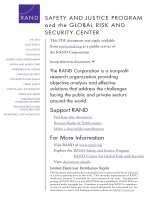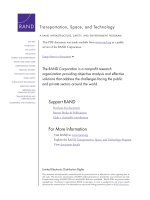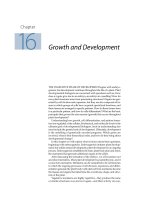JUSTICE, LEGITIMACY, AND SELF-DETERMINATION pot
Bạn đang xem bản rút gọn của tài liệu. Xem và tải ngay bản đầy đủ của tài liệu tại đây (1.15 MB, 522 trang )
OXFORD POLITICAL THEORY
Series Editors: Will Kymlicka, David Miller, and Alan Ryan
JUSTICE, LEGITIMACY, AND
SELF-DETERMINATION
OXFORD POLITICAL THEORY
Oxford Political Theory presents the best new work in contemporary political
theory. It is intended to be broad in scope, including original contributions to politi-
cal philosophy, and also work in applied political theory. The series contains works
of outstanding quality with no restriction as to approach or subject matter.
OTHER TITLES IN THIS SERIES
Levelling the Playing Field
Andrew Mason
Multicultural Citizenship
Will Kymlicka
Real Freedom for All
Philippe Van Parijs
Reflective Democracy
Robert E. Goodin
Justice as Impartiality
Brian Barry
Democratic Autonomy
Henry S. Richardson
The Liberal Archipelago
Chandran Kukathas
On Nationality
David Miller
Republicanism
Phillip Pettit
Creating Citizens
Eamonn Callan
The Politics of Presence
Anne Phillips
Deliberative Democracy and Beyond
John S. Dryzek
The Civic Minimum
Stuart White
JUSTICE,
LEGITIMACY,
AND SELF-
DETERMINATION
MORAL FOUNDATIONS FOR
INTERNATIONAL LAW
ALLEN BUCHANAN
1
3
Great Clarendon Street, Oxford OX2 6DP
Oxford University Press is a department of the University of Oxford.
It furthers the University’s objective of excellence in research, scholarship,
and education by publishing worldwide in
Oxford New York
Auckland Bangkok Buenos Aires Cape Town Chennai
Dar es Salaam Delhi Hong Kong Istanbul Karachi Kolkata
Kuala Lumpur Madrid Melbourne Mexico City Mumbai Nairobi
São Paulo Shanghai Taipei Tokyo Toronto
Oxford is a registered trade mark of Oxford University Press
in the UK and in certain other countries
Published in the United States
by Oxford University Press Inc., New York
© Allen Buchanan 2004
The moral rights of the author have been asserted
Database right Oxford University Press (maker)
First published 2004
First published in paperback 2007
All rights reserved. No part of this publication may be reproduced,
stored in a retrieval system, or transmitted, in any form or by any means,
without the prior permission in writing of Oxford University Press,
or as expressly permitted by law, or under terms agreed with the appropriate
reprographics rights organization. Enquiries concerning reproduction
outside the scope of the above should be sent to the Rights Department,
Oxford University Press, at the address above
You must not circulate this book in any other binding or cover
and you must impose this same condition on any acquirer
British Library Cataloguing in Publication Data
Data available
Library of Congress Cataloging in Publication Data
Data available
Typeset by SPI Publisher Services, Pondicherry, India
Printed in Great Britain
on acid-free paper by
Biddles Ltd, King’s Lynn, Norfolk
ISBN 978-0-19-829535-8 (Hbk.) 978-0-19-929798-6 (Pbk.)
13579108642
PREFACE TO THE PAPERBACK
EDITION
The aim of this book, which is set out more fully in the Synopsis, is
to develop the outlines of a coherent, systematic vision of an inter-
national legal order that takes the protection of human rights seri-
ously, while anchoring that vision in moral reasoning that is
informed both by a due appreciation of the limitations of existing
institutions and a willingness to consider possibilities for institu-
tional reform. Much has occurred in world politics and in the liter-
atures of international political philosophy and international law
since the hardcover edition was published less than three years ago.
Given what has occurred, the book is even more relevant now.
There are perhaps even greater opportunities today for employing
the resources of international law in the service of human rights than
ever before, because of the development of new international legal
institutions, such as the International Criminal Court, and because
of the growing ability of human rights NGOs to contribute to the
enforcement of treaty-based human rights commitments in domes-
tic courts. In addition, the European Union increasingly serves as a
real-world example and as a stimulus for theorizing the possibilities
of a supra-national rule of law with human rights at its core. The idea
that sovereignty is conditional on the protection of human rights
seems to be becoming more prominent in international legal dis-
course. At the same time, however, there are worsening human rights
crises–in Iraq, Darfur, and Congo in particular—and a growing fear
that ‘the international community’, in spite of its avowed commit-
ment to the rule of law and the protection of human rights, is once
again standing by, doing little more than issuing high-sounding con-
demnations of the carnage. Just as disturbingly, the Bush
Administration’s willingness to disregard core elements of the rule of
law, including habeas corpus, and to violate international legal prohi-
bitions on torture, when taken along with the unspeakable atrocities
of sectarian violence in Iraq, cast serious doubts on how deep the so-
called international culture of human rights really is. Under these
conditions, a well-reasoned account of the main features of an inter-
national legal order committed to human rights is all the more
urgently needed.”
A distinctive feature of the book is its holistic, systematic
approach. It provides a principled account of how an international
legal order that takes human rights seriously should respond to
issues concerning military intervention, secession, and claims to
self-determination short of secession. The possibility that Iraq may
fragment violently along ethno-religious lines, perhaps leading to
wider conflicts and even more massive human rights violations
across the Middle East, makes the issues of intervention, self-deter-
mination, and secession especially timely, demonstrates their inter-
dependence, and thereby confirms my insistence that they must be
dealt with in a unified, systematic way. Furthermore, in a world in
which ‘state-failure’ in the case of multi-ethnic and/or religiously-
divided states is, if anything, likely to become more common, the
tensions between protecting human rights and recognizing conflict-
ing claims to self-determination become more pronounced and the
needed for a coherent, unified, principled approach becomes all the
more palpable.
Developments in the scholarly literature since the publication of
the hardcover edition also confirm the book’s continuing relevance.
The issues of legitimacy that are the focus of the third Part of the
book are increasingly at the forefront of scholarship in international
legal theory and in the new, exciting interdisciplinary literature in
which international relations theorists, political philosophers, and
international lawyers are participating.
The Bush administration’s decision to invade Iraq without
Security Council authorization and more generally its apparent dis-
regard for at least some aspects of international law have helped to
stimulate a vigorous debate about the commitment to the rule of
international law. Some American international lawyers have
argued that commitment to the rule of international law is purely
contingent and instrumental—that it is perfectly appropriate for
states that are powerful enough to do so with impunity to comply
with international law only so far as it is in their interest to do so.
Some of those who hold this purely instrumental view of the value
of international law have also claimed that anything more than
such a contingent, instrumental commitment is incompatible with
vi Preface to the paperback edition
constitutional democracy at the domestic level. My book is also a
contribution to this debate, which is still very much developing. I
argue that the same values that ground the commitment to domes-
tic democracy require a moral commitment to the enterprise of
international law, a commitment that cannot be reduced to pursuit
of ‘the national interest’.
Preface to the paperback edition vii
This page intentionally left blank
ACKNOWLEDGMENTS
In the long process of writing this book I have incurred many debts.
I have learned a great deal relevant to this project from my former
graduate students, Avery Kolers, Kristen Hessler, Cindy Holder,
Stefan Sciaraffa, and Kit (Christopher) Wellman, all of whom pro-
vided excellent comments on drafts of this book. My Arizona
colleague Tom Christiano has taught me much about democratic
theory and Political Philosophy generally; I hope this is evident in
the chapters that follow. I also thank David Miller and Will
Kymlicka, co-editors of the series in which the present volume
appears, and Margaret Moore, who provided insightful comments
on the typescript.
I especially want to thank Kit Wellman for stimulating me to think
harder about the nature of political legitimacy and for organizing a
workshop in which he and the following scholars generously com-
mented on a draft of the typescript: Andrew Altman, Andrew
I. Cohen, William Edmundson, Peter Lindsay, Larry May, George
Rainbolt, Andrew Valls, and Clark Wolf. The comments I received
from the participants in this workshop were invaluable. They helped
me focus the typescript on and the most important points I wish to
make, enabling me to correct a number of errors to eliminate several
unclarities. I am extremely grateful to Kit for taking the initiative to
devise this generous gift to me and to all the participants for their con-
structive and gracious comments. Special thanks are due to Larry May,
whose expertise in international law and philosophical acumen
enabled him to make several key suggestions for improving the type-
script, and to Andy Altman whose remarks resulted in a clearer and
more direct presentation of my central argument concerning the
nature of political legitimacy. Those who are interested in the moral
foundations of international law should look forward with keen anti-
cipation to May’s forthcoming book on international criminal law.
My thinking on international legal reform and on humanitarian
intervention has benefited from stimulating conversations with Jeff
Holzgrefe, Bob Keohane, and Jane Stromseth. Holgrefe also pro-
vided probing comments on a draft of the typescript.
I also wish to thank Richard T. DeGeorge for inviting me to par-
ticipate in a lecture series on international justice at the University of
Kansas. DeGeorge and the students of his graduate seminar provided
me with many useful comments on an early draft of this volume.
David Luban read through a draft of the entire book and gave me
the benefit of many constructive criticisms. As a result, every chap-
ter was improved.
I hope my debt to David Golove is apparent from the frequent
references to his thinking in footnotes scattered throughout the
book. My work with him on an earlier co-authored paper on the
Philosophy of International Law encouraged me to go further and
deeper.
To Hurst Hannum and Fernando Teson I owe perhaps the great-
est debt of all. In responding to my 1991 book on secession, Teson
encouraged me to draw the implications of my view for the ques-
tion of intervention. Doing so eventually led me beyond the con-
fines of thinking about secession as a two-party conflict to a
systematic consideration of the moral foundations of international
law. I hope that my book will complement Teson’s work. He is in
fact a leading exponent of the general approach taken in this vol-
ume, having argued passionately for many years that the interna-
tional legal system should above all serve to protect human rights,
not the interests of states.
Hurst Hannum is a model of sensitive, informed, and critical
thinking about international law. With characteristic generosity he
made me feel like a valuable contributor to the issues he had
thought long and hard about at a time when I was just becoming
aware of them. His combination of theoretical insight and dedicated
human rights activism exemplifies the best in the community of
international lawyers.
I am also grateful for the kind and constructive criticism I have
received from other prominent members of the community of inter-
national legal scholars as well, when I presented papers that
explored issues addressed in this book at a number of law schools.
Instead of regarding me as an interloper, they have shown remark-
able patience with my ignorance of their areas of expertise and done
much to help me ameliorate it.
I have benefited from the warm encouragement of Christopher
Maloney of the University of Arizona. I cannot imagine a more
x Acknowledgments
supportive department head. Sandy Arneson provided constant
support and exceptional research and editing expertise.
I also wish to acknowledge several institutional debts. I thank the
Udall Center for Public Policy at the University of Arizona for
awarding me a fellowship to work on the issue of indigenous peo-
ples’ rights. The Earhart Foundation generously sponsored research
leaves, for the writing of this volume and my earlier book on seces-
sion as well. The National Humanities Center, where I had the
honor of being awarded the John Medlin, Jr. Senior Fellowship for
2001–2, provided the ideal environment for working through the
entire manuscript and adding significant new material on humani-
tarian intervention. I am grateful to the Center’s Director, Bob
Connor, to the Fellows Program Director, Kent Milliken, and to the
entire staff of the Center who made my stay there so enjoyable and
productive.
This volume draws on previously published articles and book
chapters. Some material from Chapter 1 comes from “The
Philosophy of International Law,” co-authored with David Golove.
This chapter also draws on the argument of “The Internal
Legitimacy of Humanitarian Intervention,” which appeared in The
Journal of Political Philosophy. Chapter 3 contains material from
“Justice, Legitimacy, and Human Rights,” which appeared in The
Idea of Political Liberalism, edited by Victoria Davion and Clark
Wolf. Chapter 5 draws on my article “Political Liberalism and
Democracy,” which appeared in Ethics. Chapter 6 includes material
from “Recognitional Legitimacy and the State System,” in Philosophy
and Public Affairs. Chapter 8 utilizes material from “What’s So
Special About Nations?” in Rethinking Nationalism, edited by
Jocelyne Couture, Michel Seymour, and Kai Nielsen. Chapter 11 is
based in part on “From Nuremburg to Kosovo: The Morality of Illegal
Legal Reform,” which appeared in Ethics, and on “Reforming the
International Law of Humanitarian Intervention,” in Humanitarian
Intervention: Ethics, Law and Policy, edited by Jeffrey Holzgrefe
and Robert O. Keohane.
The foregoing articles and book chapters were written over a period
of over a decade, during which time my views changed considerably.
Consequently the material from them that appears in this book is
considerably modified and integrated with new material.
Acknowledgments xi
This page intentionally left blank
CONTENTS
SYNOPSIS 1
1. INTRODUCTION: THE IDEA OF A MORAL
THEORY OF INTERNATIONAL LAW 14
PART ONE JUSTICE
2. THE COMMITMENT TO JUSTICE 73
3. HUMAN RIGHTS 118
4. DISTRIBUTIVE JUSTICE 191
PART TWO LEGITIMACY
5. POLITICAL LEGITIMACY 233
6. RECOGNITIONAL LEGITIMACY 261
7. THE LEGITIMACY OF THE INTERNATIONAL
LEGAL SYSTEM 289
PART THREE SELF-DETERMINATION
8. SELF-DETERMINATION AND SECESSION 331
9. INTRASTATE AUTONOMY 401
PART FOUR REFORM
10. PRINCIPLED PROPOSALS FOR REFORM 427
11. THE MORALITY OF INTERNATIONAL
LEGAL REFORM 440
Bibliography 475
Index 489
This page intentionally left blank
Synopsis
This book is an attempt to develop moral foundations for interna-
tional law. The existing international legal system, like any domes-
tic legal system, can and ought to be evaluated from the standpoint
of moral principles, including, preeminently, principles of justice.
Legal institutions and for that matter all institutions that deeply
affect the life prospects of human individuals must be designed to
function in conformity with principles of justice, because principles
of justice specify the most basic moral rights and obligations that
persons have. It does not follow, of course, that the same moral
principles will be valid for international and domestic legal systems.
And even when the same principles do apply, different institutions
may be needed to realize them, depending upon whether they are
applied domestically or internationally.
Initially my aim in writing this volume was to supplement and
strengthen my earlier work on secession, in particular by making
explicit and justifying my tacit assumption that the state’s claim to
territory ultimately depends upon its protection of human rights.
But eventually it became clear to me that the topic of secession
could not be effectively addressed in isolation. A more inclusive
moral theory of international law was required.
Beginning with the problem of secession and working back
toward more foundational issues has advantages. It is valuable to
devote as much space as I do to issues of secession for two reasons.
First, at present state-breaking is a prominent feature of the inter-
national landscape and is likely to continue to be so for some time.
Second, working out a principled view on secession requires com-
ing to grips with the right of self-determination, the recognition of
which is surely one of the most important and perilous developments
in international law in the last half-century. Third, working out a
theory of the right to secede requires the theorist to take a stand on
a number of core issues, including those of political legitimacy and
intervention. Nevertheless, I am sure that approaching the larger topic
of the moral theory of international law via this route has its costs.
From time to time in this book I refer to “the international legal
order” or “the international legal system.” Sometimes I refer to the
whole international legal system as an institution, meaning that it is
a super-institution including many institutions within it. So let me
clarify here at the outset what I mean: An institution is a kind of
organization, usually persisting over some considerable period of
time, that contains roles, functions, procedures, and processes, as
well as structures of authority.
Institutions also embody, and sometimes formally proclaim, prin-
ciples. More specifically, a description of the institution of inter-
national law will include a list of its legal principles. But international
law taken as a whole also consists of institutions in a more tangible
sense. For example, the existing international legal order includes the
United Nations, with its many constitutive institutions, including
the Security Council, the General Assembly, the World Health
Organization, various bureaucracies, committees, and commissions,
and so on.
For the most part in this book I will focus on evaluating some of
the most important principles of the existing international legal
order and proposing new principles or modifications of existing ones
that are more consonant with the demands of justice. But I will also
attend to the implications of the simple fact that principles must be
embodied in appropriate institutions. In some cases I will make fairly
concrete suggestions for institutional reform, not just in the sense of
incorporating new principles into old processes and structures, but
also in the sense of changing some of the processes and structures
themselves. My enterprise, then, is to articulate a set of moral prin-
ciples that should guide the design and reform of international law as
an institution in the broad sense that includes not only principles
but also roles, processes, and structures.
Some will be skeptical of such a project. Unfortunately, it is still
common for theorists of international relations to dismiss the very
idea of moral reasoning about international institutions, assuming that
the contest for dominance leaves little room for morality. Yet even
2 Synopsis
those who eschew moral argumentation about international law often
unwittingly take a moral position on it. Because they avoid moral
argumentation, their moral judgments are unsupported. But they are
moral judgments nonetheless.
For instance, many international relations theorists as well as
international lawyers and diplomats say that whether a state grants
recognition or withholds recognition from a new political entity
created by secession is purely a political matter. This is false if it
implies that a state’s behavior in recognizing another entity as a state
or refusing to do so is not subject to moral evaluation. Recognition
is not morally neutral even though it is true that under current
international law states have the right to grant or withhold recogni-
tion as they see fit.
The choice to recognize or not recognize has moral implications
and can be made rightly or wrongly. To recognize an entity as a state
is to acknowledge that it has an international legal right of territ-
orial integrity and this in turn lends strong presumptive support to
its territorial claims and thereby presumes the illegitimacy of claims
on its territory that others may make. For the same reason, simply
continuing the current practice of recognizing the legitimacy of exist-
ing states is not a morally neutral activity. Recognizing an entity as a
legitimate state empowers certain persons, those who constitute its
government, to wield coercive power over others, for better or worse.
To participate without protest in a practice of recognition that
empowers governments that engage in systematic violations of
human rights is to be an accomplice to injustice. Once we take seri-
ously the moral implications of granting or withholding recognition,
we must examine the arguments for and against rival proposals for
what the practice of recognition should be like, and this examination
inevitably requires an attempt to develop a moral theory that integ-
rates prescriptions for a just practice of recognition with a principled
approach to other important issues that arise in an international
legal system. To know what criteria an entity must satisfy to warrant
recognition as a legitimate state, we must know what values the inter-
national legal order should serve and what role the practice of recog-
nition is to play in serving them. This requires a moral theory of
international law.
In contrast to international relations theorists, many of whom
think that the ubiquity of competition for power leaves little or no
Synopsis 3
room for morality, international lawyers tend to be uncomfortable
with moral thinking about international law for another reason:
They fear that it will detract from a scientific study of the law. This
fear is unfounded. The moral evaluation of existing international
law and the articulation of proposals for reforming it need not
involve the confusion between law and morality that legal posi-
tivists vigorously condemn.
My project is to evaluate certain fundamental aspects of the exist-
ing international legal order and, on the basis of the same moral
principles that inform this evaluation, propose legal norms and prac-
tices which, if implemented with reasonable care, would make the
system more just. My concern, then, is with what the law should be.
For example, I evaluate several alternative conceptions of what an
international legal right to secede should be like.
In the past few years there have been several valuable attempts at
moral theorizing about various issues in international law, including
global distributive justice, secession, immigration, and humanitarian
intervention. But these issues have been addressed separately, each
in isolation from the others. In the chapters that follow I take a
holistic approach, criticizing existing international law and arguing
for proposals to reform it in a more systematic fashion, offering a
normative framework that links issues too often dealt with in isola-
tion from one another. I make the case for an integrated approach
to secession, the recognition of new states, international support for
limited self-government for minorities within states, coercive diplo-
macy, and armed intervention.
More specifically, I argue that a principled, human rights-based
approach to the problem of secession would reduce the need for
armed humanitarian intervention by providing constructive altern-
atives to secession and the massive violations of human rights that
almost always accompany it. In addition, my analysis makes it clear
that without a morally defensible, consistent international legal
framework for responding to secessionist conflicts, states run the
risk of intervening unjustly when secessions occur.
The architecture of my approach is simple and is conveyed by the
title of this book. Part One develops the case for grounding the
international legal system in principles of justice, understood prima-
rily as principles that ascribe basic and relatively uncontroversial
rights to all persons as such. There I argue that the moral foundation
4 Synopsis
for the international legal order is the (limited) obligation to help
ensure that all persons have access to institutions that protect these
basic human rights. Part Two constructs an account of legitimacy
according to which political entities are legitimate only if they
achieve a reasonable approximation of minimal standards of justice,
again understood as the protection of basic human rights. This
account of legitimacy is then adapted so as to encompass both the
legitimacy of individual states within the international legal system
and the legitimacy of the international legal system itself. Part Three
uses the justice-based conception of a legitimate state presented in
Part Two to construct a position on how the international legal order
should respond to the problems of self-determination and secession,
arguing that international law should recognize a unilateral right to
secede—as distinct from a negotiated or constitutional right—only
as a remedy of last resort against grave injustices.
These three parts, on Justice, Legitimacy, and Self-Determination,
comprise the theoretical core of the volume. Part Four, Reform,
includes two chapters. The first summarizes the central argument of
the book and the main proposals for reform that I derive from it,
and then explores some of the changes in legal doctrine and institu-
tional structures regarding intervention that would be needed to
realize them. The second chapter examines the feasibility and
morality of alternative paths for getting from where we are to where
we should be, focusing on the problem of how to reform the inter-
national law of intervention.
So, in addition to being more holistic, this volume differs in
another respect from other works that include the moral evaluation
of international legal principles and practices. I not only propose
what I believe would be moral improvements in the system, but also
explore some of the moral issues of the enterprise of reform. Unless
proposals for reform can be implemented in morally acceptable
ways, they are worse than useless.
The moral theory of international law I begin to develop in this
volume is in many respects quite radical. It represents a fundamental
challenge not only to some central features of the existing legal order,
but also to the dominant ways in which theorists conceive of inter-
national law and international relations. I offer a sustained, prin-
cipled argument for rejecting the almost universally accepted
assumption that the international legal order not only is but ought to
Synopsis 5
be a society of equal sovereign states, governed by laws grounded in
the consent of states. I also argue systematically against the dogma
that the proper goal for the international legal system is peace
among states, not justice.
First, I argue for abandoning the traditional international legal
principle of effectivity, according to which an entity is a state, enti-
tled to all the powers, rights, privileges, and immunities ascribed to
states in international law, if it has a stable population and controls
a determinate territory. I develop a normativized conception of
what it is to be a legitimate state, arguing that unless an entity meets
certain minimal standards of justice, it ought not to be regarded as a
primary member of international society. So I deny that some exist-
ing entities that are now accorded the title of state deserve the attrib-
utes of sovereignty. Moreover, I argue that the decision whether to
recognize a new entity as a legitimate state should not be a matter of
discretion. I advance a proposal for a justice-based practice of recog-
nition, supported by enforceable international legal principles that
require states to recognize new entities that meet the appropriate
minimal standards of justice and that would forbid them to recog-
nize entities that do not meet those standards. This proposal clearly
represents a serious erosion of sovereignty—a diminution of the
powers traditionally accorded to states under international law.
I reject the unreflective, or at least poorly argued, assumption that
all states should wield equal political power in the making, applica-
tion, and enforcement of international law. I argue that it is a mis-
take to think that the principle of democracy and the commitment
to the fundamental equality of individual persons that grounds it
imply that all states, regardless of how just or unjust they are and inde-
pendently of the size of their populations, ought to have an equal say
in the creation, application, and enforcement of international law. I
also argue that although “state majoritarianism”—equal political
power for all states in the making and application of international
law—has some attractions as a device for restraining more powerful
states, there may be other safeguards that are less costly to the cause
of moral progress in international law.
As to the idea that international law is and ought to be created by
the consent of states, I show that the state-consent model is neither an
accurate description of the way international law comes into being
nor an ideal worth aspiring to. The key point is that so long as many
6 Synopsis
states do not represent the interests or preferences of all their citizens,
the consent of state leaders does not carry anything like the moral
weight of the informed, voluntary consent of individual persons.
Third, I reject the unitary state paradigm that still dominates
thinking about international law and international relations. I argue
that in most cases the impulse to secede from an existing state betrays
a fundamental lack of political imagination—that paradoxically
secession is the most conservative of political acts. The secessionist
tends to assume that his problems are due to the state in which he
finds himself and that the solution is to get his own state. The anti-
secessionist tends to be equally unimaginative, seeing in every
demand for autonomy a threat to the state’s existence. The imagina-
tions of both the secessionist and the anti-secessionist are cramped
by the narrow horizons of the statist paradigm.
What the usual rhetoric of both parties overlooks is that sover-
eignty can be “unbundled” in many ways—that the only choices are
not “stay in this state as it is” or “get your own state.” Once we take
seriously the indefinitely large range of possible regimes of political
differentiation within what we now regard as state borders—the rich
menu of intrastate autonomy arrangements—we liberate ourselves
from the confining assumption that we must choose between hon-
oring aspirations for self-determination and order. What is novel and
perhaps even radical about my discussion of various intrastate auton-
omy regimes as ways of coping with or avoiding secessionist conflicts
is that I propose a role for international legal institutions in efforts to
support and in some cases even to mandate intrastate autonomy
regimes. This too represents a significant curtailment of the traditional
powers of sovereignty.
A final distinctive feature of my view is that I argue that critical
engagement with the system of international law—the effort to cre-
ate and support a just system of international legal institutions—is
not simply permissible, but morally obligatory. On this view, par-
ticipation in an international legal order is not simply a matter of
discretion; it is a requirement that derives from a rather fundamen-
tal moral obligation, the (limited) obligation to help ensure that all
persons have access to institutions that protect their most basic
human rights.
In the last chapter I argue that progress toward a more just
international legal system will probably require changes in the
Synopsis 7
international law of humanitarian intervention, and that this in turn
may require abandonment of the assumption that the UN-based law
of humanitarian intervention is sacrosanct, along with the develop-
ment of a less inclusive, treaty-based, law-governed regime for inter-
vention consisting of the most democratic, rights-respecting states.
By arguing that the state’s posture toward international law should
be shaped by a commitment to protecting the basic human rights of
all persons, I am plainly rejecting the dominant view in international
relations, namely, that state policy should or at least may exclusively
pursue “national interest.” According to the conception of justice I
lay out in Part One, the state is not merely an instrument for advanc-
ing the interests of its own citizens; it is also a resource for helping to
ensure that all persons have access to institutions that protect their
basic human rights. This is not to deny that state leaders are obligated
to accord priority to the interests of their own citizens, of course, but
it is to insist that this priority is not without limits.
The national interest view is pervasive among diplomats and state
leaders and also endorsed by many international relations scholars.
Legal absolutism, the view that it is virtually never morally justifi-
able to violate the more basic norms of international law for the
sake of morality, seems to be pervasive among international legal
theorists. (Sometimes this view is misleadingly called ‘legal posi-
tivism’, but the more common usage of the latter term is to denote
a thesis about the nature of law, namely, that whether a norm is a
law does not depend upon its satisfying any moral criteria.)
This book is a sustained critique of both the national interest and
legal absolutist positions. Regarding the thesis that states should or
may exclusively pursue the national interest in all their foreign rela-
tions, I proceed as follows. First, I argue that if there are any human
rights, then there is a heavy burden of argument to be borne by
those who endorse the national interest thesis. Next, I articulate and
show to be unsound what I take to be the two most promising
attempts to provide the needed justification: the Fiduciary Realist
Argument, according to which it follows from the nature of the
state and the character of international relations that state leaders
should act exclusively in the national interest, and the Instrumental
Argument, which holds that the risks of states attempting to pro-
mote moral values directly in their foreign policies are so great that
it is better for humanity if each pursues only the national interest.
8 Synopsis
I argue that Legal Absolutism rests either on: (1) the empirically
unsubstantiated prediction that unless compliance with the basic
norms of existing international law is perfect, the whole system of
international order will unravel in a rapid descent into violent
chaos, or upon (2) an unsupported and unsupportable assumption
that those who violate basic norms of international law for the sake
of morality are guilty of moral hubris, a willingness to impose their
own “subjective values” on others. In brief, I show how respect for
the rule of law in international relations, far from precluding illeg-
ality for the sake of legal reform, may even make it obligatory under
certain exceptional circumstances.
Because the national interest and legal absolutist positions are
pervasive and uncritically endorsed, they warrant the title of dog-
mas. So, quite apart from the other distinctive features of my
approach sketched above, the fact that I reject both of these posi-
tions makes this book radical (if not heretical).
Yet from one perspective my position is not radical. All of my
proposals for reform, like my rejection of the dominant under-
standing of what the international legal system should be and my
critique of the national interest view, are grounded in the idea of
basic human rights. In Part One I show that if one takes basic
human rights seriously there is no alternative to a justice-based
approach to the international legal system. The rest of the book is
an attempt to work out the implications of a justice-based approach.
Although my enterprise is theoretical and to that extent inevitably
abstract in some respects, its relevance is eminently practical. As I
write this Synopsis the United States is waging a “war against ter-
rorism” in response to the attack on the Pentagon and the World
Trade Center on September 11, 2001. One especially problematic
aspect of this “war” is the policy of sending American troops to aid
other states in suppressing insurgent groups that the states in ques-
tion have labeled as terrorists. American troops have been posted to
the Philippines, Yemen, and Georgia. President Putin of Russia has
affirmed his willingness to cooperate in the war against terrorism,
undoubtedly in part because he believes that if he does so the
United States will be more likely to continue to accept the Russian
claim that Chechen secessionists are simply terrorists.
By branding the Chechens as terrorists, the Russian govern-
ment hopes to divert attention from both the question of whether
Synopsis 9
their attempt to secede is justified and from the grave breaches
of the humanitarian law of war committed by Russian troops in
Chechnya. (The Russian failure to discriminate between combat-
ants and noncombatants has been so severe that it might be said
that for the Russian army a “smart bomb” is any explosive pro-
jectile that lands somewhere in Chechnya.) Furthermore, it is also
highly likely that the training given by the U.S. military to
Georgian troops will not be put to use primarily to combat
Chechen terrorists, but to suppress secession in Abkhazia.
The post-September 11th U.S. policy of global military involve-
ment poses strategic and moral risks that should be familiar to even the
most casual student of U.S. policy during the Cold War. For the sake
of combating communism, the United States became enmeshed in
internal conflicts in many states, in some cases supporting colonial
regimes against national liberation movements, and frequently sup-
porting regimes that engaged in large-scale violations of human rights.
The danger that similar wrongs will be committed in the global
military dimension of the war against terrorism is greatly exacer-
bated by the fact that the United States, like the international com-
munity as whole, has failed to develop a coherent, principled
framework for responding to—or, better yet, preventing—secession-
ist conflicts. Lacking such a framework, the United States and its
allies in the war against terrorism are likely to fail to discriminate
between insurgent groups that have legitimate grievances and those
that do not.
The sad fact is that when self-determination conflicts are allowed
to degenerate into violent secessions, both the secessionists and the
state in its efforts to suppress them usually engage in terrorism. Given
that the Kosovo Liberation Army engaged in terrorism against Serbs
in Kosovo in the months preceding the NATO intervention, one
wonders what the attitude of the United States toward that seces-
sionist group would have been if the attacks on the Pentagon and
World Trade Center had occurred in early 1999 rather than in
September of 2001.
The current danger is that the United States will too readily accept
the label “terrorists” as the essential or exclusive characterization of
what are primarily secessionist groups, and in some cases groups that
are justified in seceding. In the absence of a coherent normative
framework for evaluating secessionist claims, the United States may
10 Synopsis









